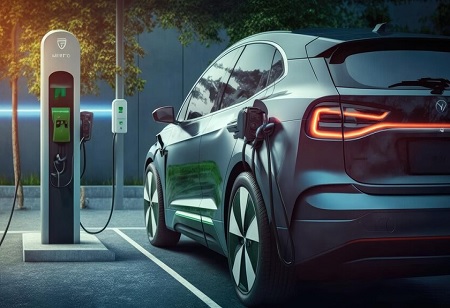
Ikea Foundation Invests $100 Million in Emerging Market EV Push

 The Ikea Foundation has contributed a $100 million (RM475.6 million) funding injection to support a worldwide effort aimed at expediting the adoption of electric vehicles. This initiative aims to assist developing nations in transitioning directly from gasoline-powered vehicles to more environmentally friendly alternatives.
The Ikea Foundation has contributed a $100 million (RM475.6 million) funding injection to support a worldwide effort aimed at expediting the adoption of electric vehicles. This initiative aims to assist developing nations in transitioning directly from gasoline-powered vehicles to more environmentally friendly alternatives.
The Drive Electric Campaign, supported by philanthropic backers such as the European Climate Foundation, announced that the recent contribution from the Ikea Foundation will be utilized to bolster advocacy and campaigning efforts for the electric vehicle transition in Africa, Latin America, and Southeast Asia. This support will be channeled into an initiative known as the "Leapfrogging Partnership."
By 2050, the majority of the growth in demand for automobiles, trucks, buses, and two- or three-wheeled vehicles is projected to come from emerging economies worldwide. The objective is to invest in these countries presently to facilitate a transition toward entirely electric growth. "Road transportation accounts for roughly 15% of energy-related greenhouse gas emissions so if we are serious about a global transition towards 1.5 degrees of global warming then we cannot reduce emissions without it", Ikea Foundation's Portfolio Manager for the real economy, Edgar van de Brug.
This grant, among the most substantial charitable contributions ever made by the Ikea Foundation, will aid local partners in addressing significant obstacles to expansion. These obstacles include insufficient charging infrastructure and a dearth of EV-friendly policies. By doing so, they aim to improve market conditions conducive to unlocking both public and private financing opportunities. According to the Drive Electric Campaign, this collective effort could potentially save approximately 43 gigatonnes of carbon dioxide equivalent (CO2e) by 2050 in countries such as Brazil, Mexico, Indonesia, and South Africa.
The increase in funding comes as a result of successful endeavors in various nations, such as India, where the electrification of last-mile parcel delivery in urban regions is experiencing significant growth, as noted by van de Brug. Beyond the evident advantages of reducing greenhouse gas emissions and enhancing air quality, electric vehicles (EVs) can also positively impact the broader economy. This includes stimulating advancements in battery technology, lowering costs, and enhancing storage capacity, van de Brug added.
"Electrification of road transportation is one of the super leverage points. That could help reduce emissions in more than 10 sectors of our economy", he said. Drive Electric programme director Rebecca Fisher said the broader societal benefits of moving to electric were also marked. "We know that communities are already experiencing the benefits of e-mobility, from delivery drivers saving money on fuel to public transit workers breathing cleaner air. Now is the time to supercharge the momentum of EV innovation with ambitious public policy, business leadership, and strong partnerships".

